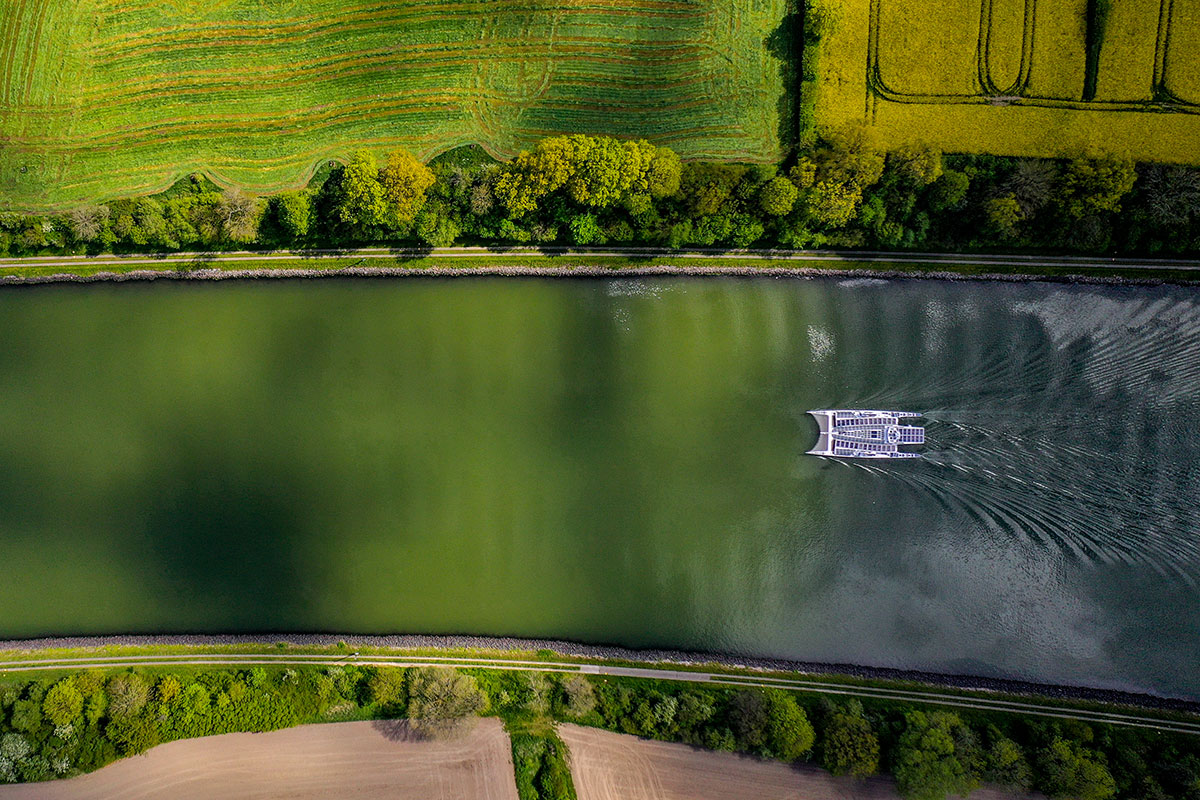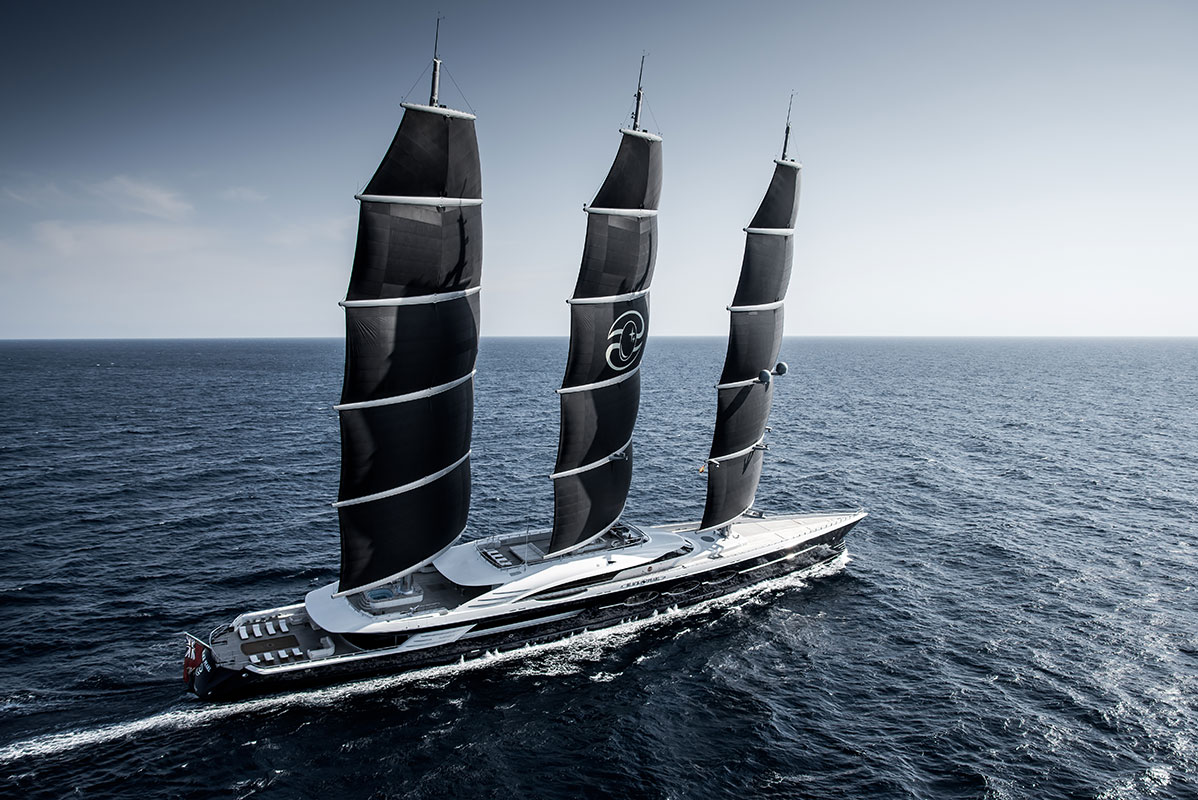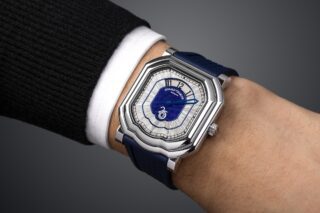This website uses cookies so that we can provide you with the best user experience possible. Cookie information is stored in your browser and performs functions such as recognising you when you return to our website and helping our team to understand which sections of the website you find most interesting and useful.
Take a look at the green machines changing the face of yachting
By Chantal Borciani | 17 June 2020 | Cars & Yachts
From solar sails to zero-emission cruising, the future of modern yachting is looking more and more sustainable

Historically, sustainability and superyachts haven’t exactly gone hand-in-hand. But times are changing. With the planet facing huge environmental challenges, the spotlight is now on not just how good your yacht looks but how ecologically sound it is as well.
From propulsion to lighting and solar-harvesting sails, yacht manufacturers are cleaning up their act and owners are reaping the rewards with lighter, more fuel-efficient yachts and even the ability to cruise silently with zero emissions.
BATTERY PACK
Hybrid technology, typically where diesel and electric power are used, has become increasingly mainstream but modern battery developments also mean that rather than just powering an electric motor, the electrical energy can be stored up in reserve and be used to cruise silently using batteries alone or be fed back into the system, thereby negating the need to fire up diesel generators.
The 83.5m Feadship Savannah, delivered by its Dutch shipyard in 2015, was a significant step forward in the battery brethren, featuring a single engine, three generators and a combined total of around one megawatt’s worth of batteries. Its ‘Breathe’ propulsion system provides the choice of no fewer than five different operation modes, from diesel and diesel-electric combinations to fully electric.
Fuel cells provide perhaps even more significance for future energy consumption. Fuel cells pass hydrogen through an electrochemical process to create electricity – the biggest advantage being that the only emission they produce are heat and pure water. Until recently, the downfall has been how to sustainably create the hydrogen in the first place but with the advent of renewable energy harvesting processes – from solar panels to wind turbines – environmentally sound hydrogen is now possible.
Launched in 2017, Energy Observer – the world’s first hydrogen-powered boat – set off on a six-year voyage around the world to inspire and educate about innovative and renewable energy solutions. The 30.5-metre former racing catamaran is equipped with 120 sq m of solar panels and two vertical-axis wind turbines, which power two electric motors. These are used to power electrolyses, which produce hydrogen from sea water. >>
Related: 10 Best 12 Volt Trolling Motor of 2020 [Deepcycle, Pontoon]

SOLAR SOLUTIONS
Oceanco’s stunning 106.7m Black Pearl forged a new path when it was launched in 2018, offering true zero-emission cruising, previously unheard of on a boat of her scope and size. Now, the trailblazing superyacht – conceived by an international group of designers, engineers, naval architects and builders – may even go a step further. The technology wasn’t ready at the time of Black Pearl’s launch, but French-based company Solar Cloth System is creating a test sail for the superyacht which uses a photovoltaic, film-like textile laminated on to the sail to generate electrical power. This advanced material is malleable, lightweight and a neat solution to bulkier traditional solar panels.
British sailing yacht manufacturer Spirit Yachts will launch its Spirit 44E in 2020. The fully electric 13.4m vessel will have solar panels integrated into her sails and aft deck and no hydrocarbons onboard. The Suffolk-based yard is working with OneSails GBR (East) to develop ‘thin cell’ PV panels for the Spirit 44E’s sails. OneSails’ 4T Forte sails are also currently the only EU-certified recyclable sails on the market. The electric yacht will also sport two solar panels integrated into the aft deck, used to charge the 48VDC 30.4kWh batteries that power her Oceanvolt SD15 electric drive.
Spirit Yachts managing director Nigel Stuart explains: “The lightweight electric drive system, weighing just 46.5kg, uses hydrogeneration via the propeller to regenerate the batteries while sailing.”
Spirit Yachts’ new eco flagship, the Spirit 111, is slated for launch in autumn 2019 and will use a Torqeedo electric propulsion system. A 100kW motor will propel the yacht silently for up to 40nm at eight knots from battery power alone. While sailing, the propulsion system will regenerate its four BMW i3 lithium battery banks by rotating the propeller shaft while the yacht is under sail. Using the propeller regeneration system to regenerate the batteries, owners will be able live comfortably onboard for four days at anchor without having to plug into shore power or start the two generators.
Creating even more waves is Silent Yachts. Headquartered in Austria and with a global network spanning Monaco, the US, Cyprus, Australia and Thailand, the yard has created the first genuinely self-sufficient production yachts – rather than an auxiliary power source, they use solar electric power as a viable option whereby owners can cruise all day at six knots on solar power alone and completely emission free. Silent Yachts offers three catamaran models; the Silent 55, 64 and 80.
ECO TOURISM
It’s not just luxury yachts that are getting an overhaul. In Venice, the committee behind VeniceAgenda 2028 has launched a new initiative to replace the city’s current fleet of motor boats with zero-emission electric boats by 2028, in an effort to reduce pollution, noise and wave-making. This policy shift is part of a growing trend; in Amsterdam, all tourist, commercial and private motor boats must be 100% electric by 2025 and in Norway, the parliament passed a resolution last year that calls on the government to transform the country’s famous fjords into the world’s first zero-emissions control area by 2026.
Collaborations between environmental groups and yacht brands are a growing two-way street. Blue Marine Foundation seeks to establish marine reserves, tackle overfishing and habitat degradation, with projects spanning the globe. Leading yards including Italy’s Benetti and Germany-based Lurssen have recently partnered with Blue Marine in its efforts, joining the Blue Marine Yacht Club – a membership group which was formed to unite the world’s yachting community in a mission to protect our oceans. Meanwhile other eco organisations such as Plastic Oceans are working with yacht and brokerage companies to provide guidelines to help reduce plastic consumption on board and onshore. >>







